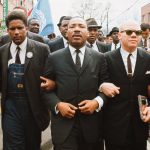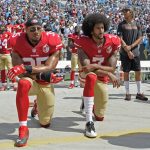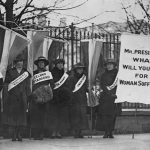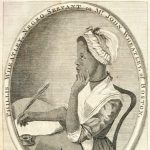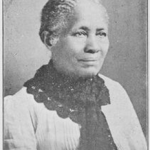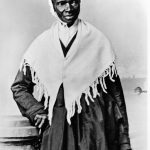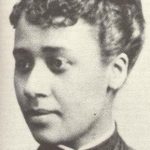What is patriotism?
Images of American flags, military triumphs, and athletic victories come to mind when thinking about patriotism in the United States. But what really is patriotism? What does it look like in ideology and in practice? What does it mean to be a patriot? Who and what do we consider to be patriotic?
The Symbolic Patriot: Identity and Patriotism
The symbol of the American patriot is intrinsically linked to the white male citizen. A term originating from the Revolutionary War, the first “American Patriot” was a soldier. Colloquially, the war between the thirteen United States of America and Great Britain was a war between the American “Patriots” and the British “Red Coats.” As a result, the idea and symbol of the “patriot” is often linked to the identity of the white male American citizen. Today, the identifier “patriot,” used interchangeably with “nationalist”by some, still conjures the image of the white man defending his nation.

However, this does not mean that a person can only be a patriot if they are both white and male. In 1775, it was not their white male identity that galvanized the Patriots to engage in a war of independence with Great Britain; it was what they believed in that inspired them to go to battle against one of the largest powers in the world. These are beliefs and value that are “American” and nothing more. Yet, we still conflate patriotism with whiteness.
Defining Patriotism
Patriotism manifests in the support for the endeavors and actions of the United States as a whole. For some it underlies their nationalist belief in the superiority of America compared to other nations and for others it inspires a life of public service with the goal of promoting the common good for citizens of the United States. What is at the core of patriotism though, is not fanatic flag-waving or blind support for one’s country, but instead a commitment to one’s nation. Patriotism is defined by devotion to one’s country and its ideals; ideals that uphold and protect the rights of all citizens, not just white males.
“We hold these truths to be self-evident, that all men are created equal, that they are endowed by their Creator with certain unalienable Rights, that among these are Life, Liberty and the pursuit of Happiness.–That to secure these rights, Governments are instituted among Men, deriving their just powers from the consent of the governed,–That whenever any Form of Government becomes destructive of these ends, it is the Right of the People to alter or to abolish it, and to institute new Government, laying its foundation on such principles and organizing its powers in such form, as to them shall seem most likely to effect their Safety and Happiness.”
-United States Declaration of Independence
Listen to the voice of John F. Kennedy, a beloved America president and patriot, as he reads this renown section of the Declaration of Independence. As he reads aloud, the gendered phrasing, although derivative of the colonial period in which the document was written, demonstrates a link between these American ideals and maleness. This link is also emphasized by JFK’s presented and understood masculinity and patriotism.
What is societally understood as patriotism, differs from this devotion definition and excludes many individuals from being understood or identified as patriots . Many people see patriots only as those citizens that have an undying love for their nation and have a willingness to defend the United States both in military action or in debate. These individuals do not often and perhaps cannot voice doubts or dissatisfaction with their country because their patriotism, and then belonging, will be questioned. For people of color, immigrants, and others oppressed by American society, being patriotic in this way, requires acceptance and even support for the very actions of the United States that actively negate their rights and respect as citizens.
The history of the United States is wrought with institutions and actions that directly contradict its founding ideals of freedom, justice, democracy, liberty, opportunity and equality. Thus, to blindly and unwaveringly support the United States is not actually an act of patriotism because it requires a disregard to what as a nation we value morally.
Patriots are those who are devoted and fight for the ideals of the United States. This fight, however, often requires criticism of America and its actions. A devotion to the United States means that you, as a citizen, are committed to its progress and development; that you want to work to make your country better. To be able to improve one’s country requires the ability to see its flaws and to confront them. A true patriot is an advocate for materializing American ideals, but this often means calling out, denouncing, and protesting against the nation.
Patriotism As a Choice?
For African Americans patriotism did not and does not necessarily result from choice, but instead necessity. Brought to America as slaves starting in 1619, African “Americans” were taken from their homelands and forced to accept the United States as their new country. The next 400 years of colonial and American history can be defined by the continued fight for the rights of African Americans; an fight that certainly did not spark from a love for their nation, but instead the lack of fundamental human rights in their home country.
The historic and ongoing struggle for the rights of African Americans directly represents an effort to uphold the founding values of the United States of America. To fight for the rights of African Americans, both in the past and today, is to fight for equality, equity and freedom; in its ideological basis and in its practice this effort is nothing but patriotic. Whether a choice or not, to actively engage in work that seeks to make the United States a better place, indicates a devotion to the country. Patriotism, in concept and in practice, weaves itself throughout African American history. The work of African Americans, from the conception of the nation to now, however, is not always recognized as patriotic, as a result of a misinterpretation of what patriotism means.
Black Women and Patriotism
The lives and work of Black American women, especially those involved in activism or politics, can fail to be acknowledged as patriotic. Perhaps this is because as writers, journalists, orators, political activists, and educators, black women threatened societal order through their vocalization of the issues plaguing the nation. While their work serves the purpose of advocating for the rights of the oppressed and the ideals of equality, freedom, and justice, characteristics that would identify them as patriots, they are not seen this way. Instead, black women’s lives and actions are not perceived as national devotion and they are often asked to prove their patriotism.
Yet, many black women, who despite being marginalized by systems of their home country, devote themselves to making America a better place and this is distinctly patriotic. The lives and work of Phillis Wheatley, Frances Ellen Watkins Harper, Ida B. Wells, Sojourner Truth, and Anna Julia Cooper, spanning from the colonial period to the late 1800s, provide a starting point for understanding the nature of patriotism for black women. Characterized as patriots, these women recrystallize the meaning of patriotism.
“The colored woman feels that woman’s causes is one and universal, and that not till the image of God, whether in parian or ebony, is sacred and inviolable; not till race, color, sex, and condition are seen as the accidents, and not the substance of life; not till the universal title of humanity to life, liberty, and the pursuit of happiness is conceded to be inalienable to all; not till then is woman’s lesson taught and woman’s cause won–not the white woman’s nor the black woman’s, nor the red woman’s, but the cause of every man and of every woman who has writhed silently under a mighty wrong.”
-Anna Julia Cooper, “Intellectual Progress of Colored Women”

